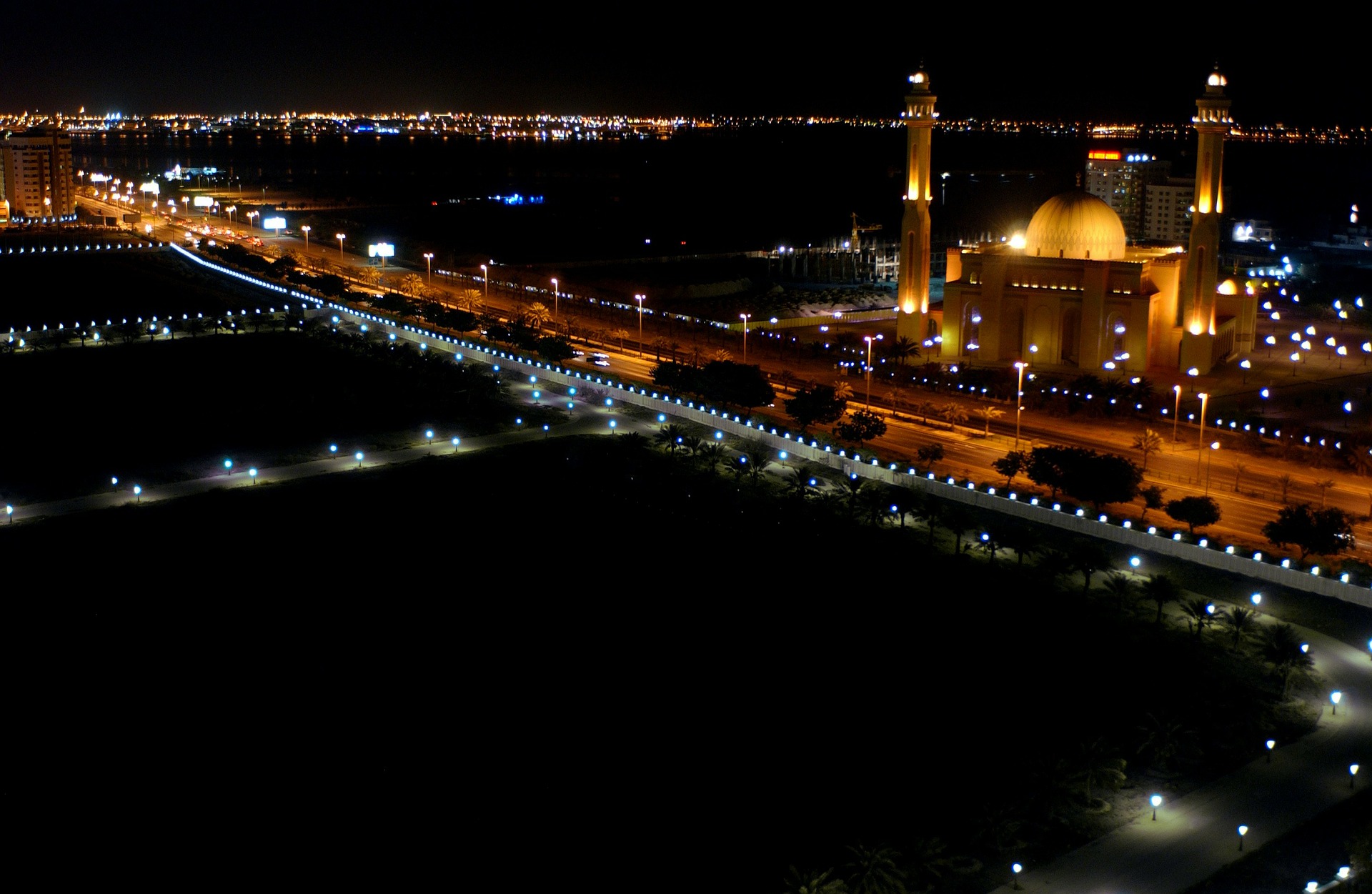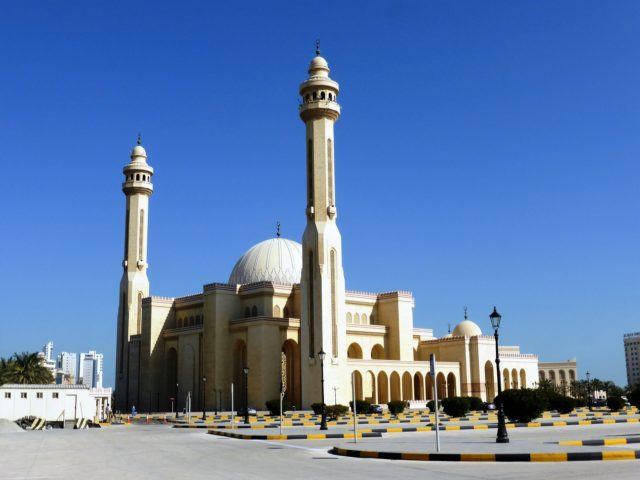Blending modernity with traditional Arab culture, Bahrain is an archipelago in the Persian Gulf characterised by barren deserts to the south, high-rise cities and low slung beaches.
Are you looking to move to Bahrain? You won’t be alone.
The country is a popular choice when relocating to the Middle East as a way of experiencing the cultural differences in a more liberal location. Many expats work in neighbouring Qatar or Saudi Arabia but choose to live in Bahrain.
Considered to be a ‘light’ version of the Middle East, Bahrain is a welcoming and friendly nation of people yet newcomers must be respectful of the Islamic faith as well as other cultural differences.
Contents
Why Move to Bahrain?
Many people move to Bahrain to further their career.
A country that has a thriving banking and construction industry there are plenty of job opportunities at many levels. Highly skilled workers can command impressive salaries and there are plenty of expats who come to Bahrain to build an early retirement fund. Others will choose the country for its low cost but high standards of living with families able to afford much larger houses and have more of a disposable income.
With an impressive education system both in state funded and international schools, there is plenty to commend a move to this Middle Eastern jewel.
Bahrain Visa Requirements for Brits
Visiting
You are required to have at least six months’ validity on your current passport to be able to visit Bahrain and you will can apply for a visa upon arrival or arrange one digitally prior to your visit (eVisa). A standard visa and eVisa are valid for 14 days (extendable for an additional 14 days) and cost around £10.
Visitors must be able to demonstrate that they have a return or onward ticket to be able to obtain a visitors visa.
Working
In order to both live and work in the Kingdom, visitors must apply for both a residency and work visa as well as a CPR Card (Identification Card).
Work visas must be obtained from the Labour Market Regulatory Authority. Applicants must complete a work visa application form as well as provide a letter of sponsorship indicating the type of employment, remuneration and full details of the employer. In addition, a copy of the contract, passport sized photograph and a completed health assessment from an approved clinic must also be supplied.
An application fee of £215 is charged for processing a work visa.
Bahrain is keen to support and promote new business ventures in the Kingdom and the process of obtaining a work visa is straightforward, The Economic Development Board provides useful services to news businesses aimed at helping entrepreneurs to establish the right networks to make their business succeed. They are particularly keen to help and promote investment in the country.
Residency
issued by General Department for Nationality & Passport Residence a residency visa costs £47 per applicant. Similar documentation is required as for the work visa and must be submitted to the Labour Market Regulatory Authority.
CPR Card
CPR Cards are held by all residents of the Kingdom of Bahrain and cost £2 per applicant. As well as a sponsorship letter from a current resident of the country, applicants must provide proof of ID (birth certificates for children and marriage certificates for spouses) as well as their passport.
Citizenship
It is not easy to obtain Bahraini citizenship and, other than citizenship by birth, descent and marriage, foreigners may only apply for citizenship if:
- They have lived in Bahrain for 20 years (15 years if an Arab citizen);
- They have no criminal record and are of good standing;
- Has knowledge of the Arabic language.
It is also useful if the applicant has property or real estate in Bahrain.
Way of Life in Bahrain
Lifestyle
Bahrain is a nation built on strong religious beliefs and its culture and people are defined by the Islamic faith. The Bahrainis are tolerant and open-minded to visitors to the country but expect their values and culture to be respected.
Disrespect towards the Islamic faith is highly offensive and can result in either a heavy fine and/or imprisonment. However, other faiths and religions are treated with equal respect and expats who wish to observe the traditions of their own faith can do so peaceably.
Daily life is punctuated by the Islamic faith and you should respect these differences. Muslims pray five times a day, at very specific times. These prayers are observed irrespective of where and when they occur and it is not unusual for a bus you are travelling on to pull over so that the passengers (and driver) can observe their daily prayers.
Calls to prayer are often broadcast from the mosques using a speaker system which begins before dawn and can be a shock the first time you are woken to the sound. You will become accustomed to this in time and it will become a part of the rich cultural diversity of life that Bahrain offers.
The holy month of Ramadan occurs on a lunar calendar and varies each year but starts around May/June. During Ramadan, Muslims fast from dawn until sunset. As the sun sets across Bahrain you will find restaurants full of Bahrainis breaking their fast with the traditional meal of Iftar.
Whilst the fasting may not directly affect non-Muslims, the Ramadan period is observed with great sobriety during the daylight hours. It is punishable by law to play loud music, dance, eat, drink and smoke in public.
A conservative nation there are other laws which must be observed by visitors to the country. Sexual relationships outside of marriage are illegal and cohabiting with someone whom you are not married to (even in a hotel) is illegal. Being pregnant outside of marriage can also carry serious implications.
Generally, public displays of affection are not tolerated although holding hands is okay between married couples.
On an enlightened front, same-sex relationships between adults over the age of 21 is legal in Bahrain although the same rules apply when it comes to public displays of affection.
Aggressive behaviour and offensive language (or gestures) can result in fines or imprisonment. Drunken behaviour, spitting and road rage carry the same punishments.
Having said all of this, Bahrain is quite a liberal country and tolerates other cultures and faiths very respectfully. Citizens and visitors enjoy their entertainment and there are plenty of bars, clubs and restaurants in which to spend a good night out. The key is moderation when it comes to alcohol and not to get drunk enough to cause offense.
The evening plays a big role in the Bahrain day and centres around an evening meal with family and friends. Because of the temperature drop, the evenings are a great way to explore the cities and spend leisurely time enjoying the company of friends in the outdoors.
Dress
An Islamic country, the dress code in Bahrain is conservative and some rules should be observed to avoid causing offense.
All forms of nudity are strictly forbidden (including topless sunbathing) and care should be taken in public to avoid exposing too much flesh. Clothing should not be transparent, expose the body indecently or carry any slogans etc. that may cause offense. If you fail to comply with these guidelines you may be asked to leave an establishment or you can attract the wrong kind of attention from the law.
With the extreme heat in summer, covering up is essential and you will generally move from one air-conditioned area to another (car, home, office, shopping mall etc.) so you should not find dressing respectfully any problem.
Formal occasions and event will prompt a smart dress code but otherwise Western casualwear is perfectly acceptable.
Getting Around
Walking is not advisable in Bahrain.
Not only is the heat often too oppressive to make this sensible but it can be dangerous as a pedestrian. Outside of the shopping malls and precincts and around the residential areas you can find pavements but they just do not exist beyond these locales.
Driving in Bahrain
Because the cost of running a car is quite inexpensive, many expats either choose to lease or buy a car if one is not provided for them with their job. The benefits of having your own car are such that you are free to explore the country at your leisure from the comfort of an air-conditioned car.
The road networks are very good and you can reach all outlying towns and villages using well paved and maintained roads.
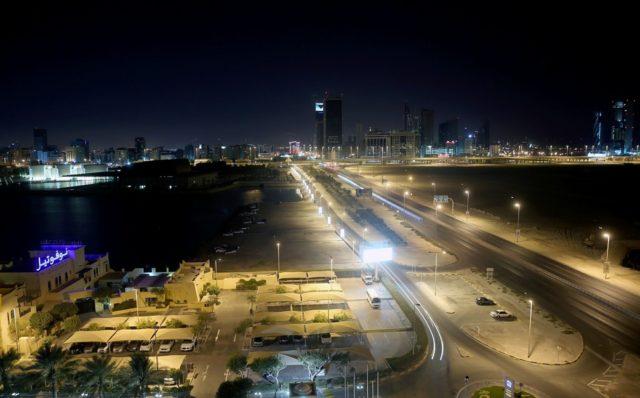
City driving can be quite fraught and the country’s drivers have a reputation for their erratic maneuverers.
You can drive on a British license in Bahrain for three months but remember to drive on the right hand side of the road.
If you are put off with running your own car abroad then taxis are much cheaper than in the UK and are very reliable. Oftentimes, expats will make a connection with a regular driver who they will use almost exclusively. The costs of effectively having your own chauffeur are much less than if you were to hire someone full time.
Buses are also available but tend not to have good air-conditioning and can be quite busy during peak periods.
Weather
The climate in Bahrain is arid and has just two season; a long hot and dry summer with a mild winter. The summer months run from April to October with average temperatures of 30-35oC and highs of 48oC during June and July being typical. There is no rain during the peak summer months.
November to March can reach average lows of 16oC and rarely exceed 20-25oC with a handful of rainy days.
The country is also subject to summer winds, known as the qaws, that blow from the south west up towards Manama in the north. The qaws bring sand clouds from the barren desert and can make the air particularly uncomfortable in addition to the heat and humidity.
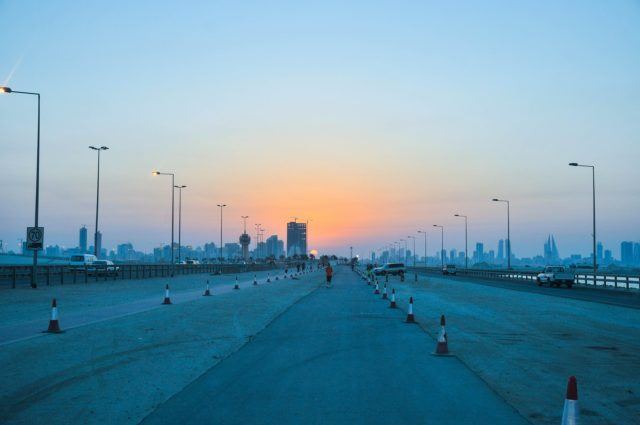
Cost of Living in Bahrain
The cost of living, net of rent, in Bahrain is approximately 18% lower than in the UK and is ranked 49th out of 123 countries globally (the UK is 23rd). On a par with Brunei and Panama, consumer prices are low and purchasing power is high. There are some exceptions to the cost of living that may come as a surprise (internet prices are higher, as is the cost of gym membership) whilst others will be obvious (alcohol is considerably more expensive in Bahrain).
Rent
Having no choice but to rent in Bahrain (expats cannot own property here) there are plenty of options available on the property market. As ‘rural’ Bahrain is a desert all property is either urban or suburban but you can find properties within enclosed compounds as well as within local communities. Accommodation types vary from grand villas to studio apartments but most are rented unfurnished.
The cost of renting in the capital of Manama is 57.55% lower by comparison than London but Bahrain in general is 1.41% lower than the UK.
The cost to rent a one bedroom flat in the capital city of Manama costs £704.62 per month compared to the UK average of £736.11.
The range across Bahrain is quite varied with prices in Saar being just £535.61 and, at the other end, Seef costing £1,285.45 per month.
Lifestyle
Consumer goods and basic essentials are overall around 31.26% lower in Bahrain than in the UK though some items in an average shop will be a more expensive. Shopping for local produce will realise a larger saving whilst imported goods will, of course, be more pricey.
| Indices | London | Manama | Difference |
| Bottle of Imported Beer | £4.00 | £6.43 | +60.68% |
| 1l Milk | £0.90 | £1.14 | +26.75% |
| Loaf of Bread | £1.02 | £0.83 | -18.29% |
| 1kg Potatoes | £1.19 | £0.93 | -22.24% |
| Pack of Cigarettes | £9.00 | £3.00 | -68.43% |
| 1 Min Pay-as-you-go Mobile | £0.17 | £0.08 | -52.87% |
| Internet Monthly (10 Mbps) | £24.67 | £31.28 | +26.77% |
| Cinema Ticket (New Release) | £12.00 | £6.43 | -46.44% |
| Pair of Jeans (Levi 501’s) | £63.31 | £42.26 | -33.24% |
| Monthly gym membership | £47.54 | £61.21 | +28.76% |
Of note is the difference in price for gym memberships. Some expat clubs (notably The British Club in Manama) offer their own leisure facilities or rates so you should check before committing to a membership.
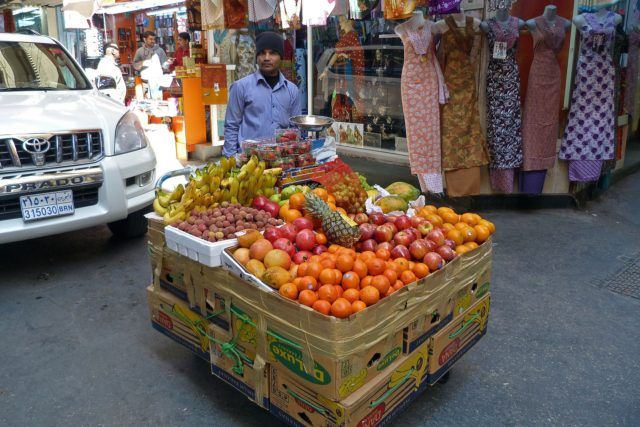
Transport
One of the biggest cost differences in Bahrain is the price of fuel and the cost of cars. A litre of fuel is 71.53% lower in Bahrain than in the UK and, being close to the Asian export markets, you can buy a new car (Toyota Corolla or similar) for 20-25% less. European cars are also a little cheaper and you can expect to get around 5% off a VW Golf (or similar).
Because the heat restricts the amount of walking you can do, a car is an essential luxury for commuting around the cities unless you use a taxi. Taxis are much cheaper in Bahrain and can cost between 70-100% less than similar distances or times in the UK. A 1km taxi ride will cost £0.54 and an hour wait would be just £4.28.
Buses are also an effective way to get about town and are much cheaper than running a car or using taxis. In comparison to the UK a monthly bus pass in Manama costs just £25.71 or 80.22% less than a similar pass in London; single, one-way fares cost around £0.50-0.60.
Schooling
Fees for international and private schools in Bahrain are pricey and are, on average, 10% higher than for similar institutes in the UK. Some families opt for private tuition to create a bespoke learning environment for their children and this can be even more expensive.
If you are looking to travel to Bahrain with children then you must factor in the additional cost of schooling and look at negotiating this as part of your remuneration package with your employer.
Popular Areas for Brits
Manama
The capital city of Manama has a population of 157,000 people with a high density of expats of all nationalities including British, American, Canadian and Australian as well as other Europeans. The economic epicentre of the country, Manama has a high proportion of corporate Headquarter buildings. With over 200 financial institutions the employment opportunities here are extensive.
The city is home to the renowned British Club, the country’s biggest British expat community with over 1700 members.
There are a wide range of other social clubs in Manama aimed at the expat community including a rugby club, karate centre.
Adliya
A trendy suburb of the city of Manama, Adliya is one of a few districts that has an active and thriving nightlife. With plenty of places to eat out and enjoy bars and clubs, Adliya has the largest British expat community anywhere in Bahrain. There is a good mix of other ethnicities and nationalities and rental prices are lower than Seef or the Amwaj Islands.
Amwaj Islands
Situated in the Muharraq area of Bahrain to the north-east of the country, the Amwaj Islands are man-made islands offering a picturesque residential area, beaches, bars and several boutique shops. There is even a Waitrose. The area is great for families and dogs who enjoy the beach lifestyle when the climate is not too oppressive.
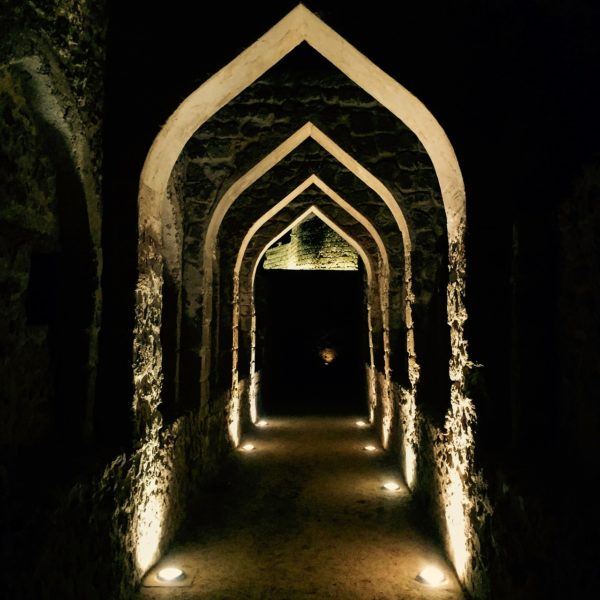
Popular with Western expats from the US, Australia and Canada as well as the UK, the rents on Amway Islands are much higher than average. For those expats who choose Bahrain as a means to work in Saudi Arabia then the location of Amwaj Islands is not ideal being situated a good distance from the interconnecting Saudi Causeway.
Juffair
Home to the largest US naval base in the Middle East, Juffair is a popular location for American expats to make home. That said, there is also a nice mix of other nationalities including Brits.
The area has plenty of things to do including cafes, clubs, bars and restaurants and makes an ideal spot for going out and making new friends.
Rents are lower in Juffair than Seef or Amwaj Islands and comparable to Adliya.
Saar
Due its proximity to the Saudi Causeway, Saar is a very popular community for Brits as well as Americans, Pakistani and Indian families. There are a couple of expat clubs which operate in the area providing sports and social events in which to network. There are quite a few gyms in Saar as well as beauty salons, boutiques and even a dance school.
For families and teens the international cinema plays films in many languages mostly with English subtitles and is one of the hubs of the local community.
Rents in Saar are reasonable and accommodation ranges from studio flats to large private villas.
Saar is a very pleasant community to live in and is clean, attractive with excellent facilities.
British Communities in Bahrain
The expat community in Bahrain is sizeable with over half a million people of varying roots now calling the country home. Of these around 8,000 to 10,000 are British.
Brits in Bahrain occupy many of the larger cities but have predominantly been drawn to Adliya or Manama.
Each of the major cities has their own expat communities however sizeable they are many of which run regular events, socials as well as encouraging families to get involved with local communities.
Diverse occasions can be arranged from book clubs and fitness groups to meals, excursions and even traditional cooking with the locals. It is a good idea, however self-sufficient or well looked after by your company you are, to make contact with your local expat group. Not only can they provide a great network of support and advice when you need it (and you never know when you will) but they are also an excellent opportunity to meet important people within the business world. Many a career path has been made easier by being introduced to the right person at an expat event.
The British Club in Manama is one of the oldest expat clubs in Bahrain and has been voted Best Social Club in the World by The Telegraph.
Founded in 1935, the club has over 1700 members and offers everything from Zumba classes, Taekwondo and Bridge to running its own library, health club and restaurant. They offer a great range of children’s activities including swimming lessons as well as running their own theatre group.
Bahrain Essentials
Jobs Economy
The jobs market in Bahrain has huge potential particularly for skilled workers or those with niche industry knowledge. Most expats who live here do so to further their career.
Bahrain is the epicentre of the financial sector in the Middle East and is home to many banking institutes as well playing a huge role in the construction and petroleum industries.
Beyond the traditional mainstays, the economy in Bahrain is diversifying at a great rate and there are new opportunities within the tourism and service sectors.
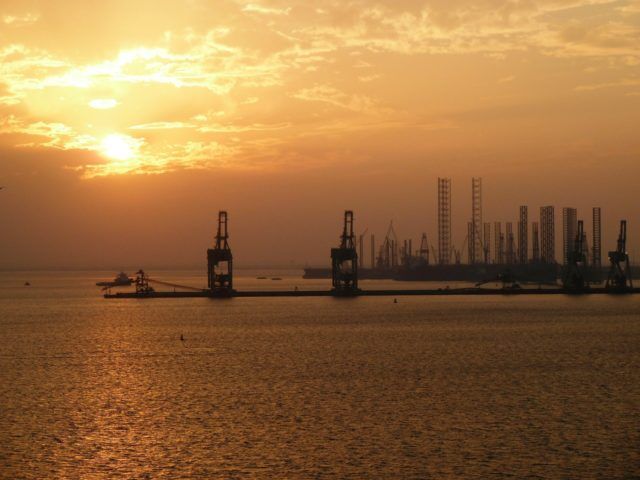
Healthcare
With more medical professionals per population than anywhere else in the Gulf Cooperation Council, Bahrain’s healthcare system is robust and well-managed. Offering excellent care in both private and public sector, expats have plenty of options as to the treatment they receive.
Many multinational organisations include private healthcare within their remuneration packages. If this is not the case in your circumstances, then you will need to arrange suitable international insurance.
There are still some challenges to be faced with the Bahraini healthcare system including language barriers.
Many healthcare professionals are migrants themselves and may not speak English; this is most prevalent in the public hospitals. In addition, medicines that have been prescribed in the UK (or other country) must be accompanied with a letter from your GP in order to ensure repeat prescriptions are available.
There are certain medications that you may not be able to obtain in Bahrain so do check in advance if you have any concerns.
The biggest risk factors in Bahrain come from the strength of the sun and cause sunburn, dehydration, heat stroke. The plentiful airborne sand and dust can also cause problems for asthma sufferers.
Bringing Kids to Bahrain
Bahrain has a high literacy rate and boasts an excellent public and private education system. There are plenty of international schools to choose from, many of which offer schooling based on the British system or European equivalent.
Bahrainis value education and there has been heavy investment in the education sector over the last fifty years resulting in the country ranking very highly globally as a good place for schooling.
In their annual Expat Explorer Survey, the HSBC found that 73% of expat parents believe their children have a better quality of life in Bahrain than in their home country. Over half of parents surveyed also said that the country offered greater wellbeing and health benefits than the UK.
Bahrain is a safe country where family remains at the heart of cultural traditions and culture. Bahrainis invest well in the education of their own children along with those of foreign nationals.
There is plenty of activities for children to be involved in outside of school life, particularly if you consider organised groups, clubs and events.

